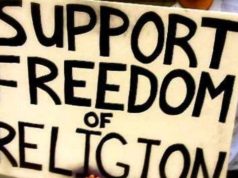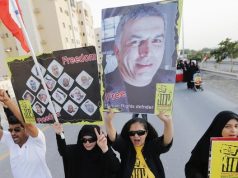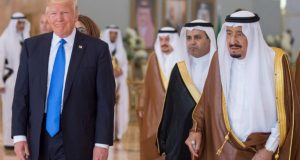
The Recipe
After the waves of Arab Spring hit Yemen in 2011, it appeared that Ali Abdullah Saleh agreed to resign after more than two decades of Presidency over Yemen, the Gulf Cooperation Council (GCC) initiative to implement National Dialogue Conference (NDC) for Yemeni parties and streamline a peaceful political transition process. The talks began from March 2013, and there were lots of pleased faces to see: Saudis, Emiratis, other GCC members, Western Powers, interim President Mansour Hadi, and UN Special Envoy to Yemen Jamal Benomar. Everyone seemed to be happy, except those who really were supposed to be, average Yemeni people who barely saw any change in their daily life of struggling with poverty and security threats from Al-Qaeda, ISIS and Salafi extremists.
While GCC, other world powers and even UN representatives painted a rosy picture of the National Dialogue Conference by applauding the progress of the talks, and describing it as an exemplar of a peaceful negotiations that has paved the road of demographic transitions, beneath all those sugar coats laid serious unresolved problems, not tackling of which lead to the current crisis in Yemen. The talks failed to address socioeconomic and security problems and regional division disputes. Moreover, transitional government of Hadi failed to implement whatever was agreed upon, even though foreign stakeholders were pleased with the situation as they thought it would preserve their interest. Western powers were convinced that Hadi’s interim government is leading the country to a new constitution and democratic change, allowing them to counter terrorist organizations like AQAP and ISIS, in addition to addressing their common concerns with GCC states about Iran’s influence. In other words, they put too much faith in Hadi’s government, which in reality showed incompetence, sidestepping corruption and nepotism problems and yielded to pressure from Saudis’ Anti-Shi’ism sentiment to marginalize Houthis.
The Roots
Although the oversimplified picture that most distance reporting of events in Yemen by mainstream media have portrayed the crisis as merely a sectarian conflict, according to many Yemeni experts the nature of the crisis has domestic roots, fueled with the state interests of the foreign nations. Saudis supported Zaydi Shia monarchy against the republic in 60s; they then started backing southern secessionists. After the Arab Spring the Saudi monarchy was threatened by the rise of the Sunni Muslim Brotherhood, so they stopped funding the Islah Party, the Brotherhood branch in Yemen, Saudis supported Shia Houthis to counter Islah. They sponsored new born extreme Salafi parties like Al-Rashad, some of the members of which was listed by U.S. as terrorists that politically front faced, sympathized for, and supported Al Qaeda, and finally the Kingdom blacklisted the Islah party. But now fear of de-escalation of tensions between U.S. and Iran amid a nuclear deal, less dependency of U.S. on Saudi oil, power vacuum after the death of King Abdullah have caused Saudis to panic from Iranian influence and that sparked their knee-jerk reaction when Houthis take over Sana’a. Any groups that show willingness to counter Shia Houthis, be it tribes some of whose members are AQAP affiliates, Salafists, secessionists, even Islah, which is one of the main anti-Houthi groups, receives Saudi arms and money. According to Dr. Charles Schmitz, an expert on Yemen from the Middle East Institute, the Iranians also have the history of supporting Ali Salim al-Beidh and the southern secessionist movements that are largely Sunnis. Dr. Schmitz raised the point that “The conflict is over interests, not theology” (1). Now the sectarian cards are played as a pretext for the crisis; however, the level of interests is not equally distributed between foreign states. Iran has given more priority to Iraq and Syria than Zaydi Shia Houthis, and analysts like Dr. Schmitz and Kenneth Pollack from Brookings, stated that the role of Iran is exaggerated in what is a “civil war” in nature (2), while Saudi Arabia, which has 1100 miles border with Yemen, has a lot more to be worried about, and has lots of rival political models like those of populist Muslim Brotherhood Islah, to Ansar Allah or Houthis on the south and Shia-dominated Iraq from the north all playing “change” tone in Saudi ears, that’s the reason why they constantly move around their eggs across many baskets.
Dr. Charles Schmitz, in an interview with a columnist for Telegram7, said that Houthis takeover of presidential palace in January 2015 was to object to terms in the new constitution that divides the country into six federal regions, a division that blocks Houthis access to the sea sanctioning the already under-developed economy of the area. Mohammad al-Bakhti, a Houthi Leader, opposed the division “because it divides Yemen into poor and wealthy regions”. Houthis also boycotted the concluding plenary session of the National Dialogue Conference for two reasons: First the assassination of a Houthi representative to NDC (second assassination in two years) right before the final meeting and continuation of the session, and secondly the change of session’s voting mechanism from consensus to majority by Hadi’s mandate, which was also objected by the Socialist party as well (3). The six-region federal system was also rejected by southerners, Al-Rashad, and Socialists, even though Socialists reluctantly signed it at last. Also according to Dr. Schmitz, a Houthis’ taking over of Sana’a in September 2014, was not directed for a coup, but to create a five-member presidential council, which included Hadi, and bring technocrats to the government, and all Yemen’s political parties agreed on that, but the only problem that lead to the failure of the agreement was over who would lead the council. Houthis and Saleh proposed a southerner other than Hadi, while the other side wanted Hadi as the head of the council (1).
The Outcomes
Saudis have started the war game in Yemen without clearly defined endgame condition, and this is the main reason why some of the traditional Saudi allies like Nawaz Sharif, the Prime Minister of Pakistan distanced themselves from joining the war coalition led by the young son of King Salman. If the claimed goal is to bring Hadi back, but Hadi was not a popular figure in Yemen even before he fled to Ryadth and asking Saudis to bomb Yemenis. According to Dr. Andreas Krieg, an assistant professor at the Defence Studies Department of King’s College London, even Saudis and Qataris know that Hadi is not a safe political investment, while Egypt and UAE cannot stand Islah, the Muslim Brotherhood branch and the main anti-Houthi party in Yemen. GCC states seems to be departed on their ideal presidential choice for Yemen.
The air strikes have had limited effect on the advancement of Houthis, who have gained experience in guerrilla fighting during years of conflict with Saudis and Yemeni military. Saudi tactic to increase air raids before mid-June Geneva talks to increase pressure and use it as leverage on Houthis was unsuccessful. The Saudi air raids only made more civilian casualties, while Yemeni military and Houthis could manage to conduct retaliation raids on military bases in Saudi border. One of the most serious consequences of all is Al-Qaeda and ISIS have been strengthen through the conflict and that itself is one of the most serious consequences nobody can afford.
Humanitarian Crisis
The Saudi-led strikes have so far killed nearly 2000 people of whom at least half of them are civilians, and left 8000 people injured, according to reports from UN human rights office and the World Health Organization (WHO). Total blockade of the poorest Arab country that imports almost all of their food and Saudi’s throttling the humanitarian aids has created a disastrous situation in Yemen. Fuel shortage has not only inflated cost of necessary items and obstructed people from fleeing the conflict zone, but also have had the understaffed hospitals to reject injured victims and even total shut down due to shortage of power and medical supplies.
The air strikes have created sense of nationalism and anti-Saudi sentiments. According to Sami Ramadani, a political analyst in London, the Saudi-led war has united many factures of Yemeni people and overwhelming number of organizations that have significant weight in Yemen against Saudis, whose strategy goes only as far as “if you cannot control a place or change its regime, then destroy it”. The infrastructure of Yemen is destroyed the roads, airports, hospital, schools, mosque, a refugee camp, and a dairy factory in Hudaydah has been bombed by Saudis. Eighteen academic scholars in Yemeni affairs across university in United States and United Kingdom in an open letter raise their objection to Saudi-led bombings, calling the raids “illegal under international law” arguing that none of the coalition states have a “case for self-defense”, and the called for their country’s support for a UN Security Council resolution that mandates unconditional ceasefire, respects the sovereignty of Yemen and allows room for Yemenis themselves to reach a diplomatic solution (4). Target selection of civilian populated areas is violation of the laws of war. Human Rights Watch also has reported Saudi-led coalition use of banned cluster munition, that cannot distinguish between civilian and military targets and have taken civilian victims (5).
Conclusion
The crisis in Yemen is first and foremost domestic and therefore should be solved by Yemenis and by Yemenis only. World powers should support Yemeni talks without any pre-conditions. A long term solution includes the interest of Yemenis and is directed at improving socio-economical and security problems across all secs, tribal and regional lines, otherwise, the only winner of this ongoing crisis would be Al-Qaeda in Arabian Peninsula and new brands of terrorism like ISIS, whose gaining ground can destabilize not only Yemen and neighboring countries, but can jeopardize global security.
References
- Misadventures in Violence in Yemen: Operation Resolute Storm. Schmitz, Charles. s.l. : Middle East Institute, April 01, 2015.
- The dangers of the Arab intervention in Yemen. Pollack, Kenneth M. s.l. : Brookings, March 26, 2015.
- Al-Bukhaiti, Ali. Houthi Spokesperson Talks to the Yemen Times. [interv.] Mohammed Al-Hassani. s.l. : Yemen Times, February 6, 2014.
- Middle East Research and Information Project. United Nations, Yemen. MERIP.org. [Online] April 16, 2015. http://www.merip.org/open-letter-yemen-scholars-protesting-war.
- Human Rights Watch. Yemen: Cluster Munitions Harm Civilians. HRW.org. [Online] May 31, 2015. http://www.hrw.org/news/2015/05/31/yemen-cluster-munitions-harm-civilians.









